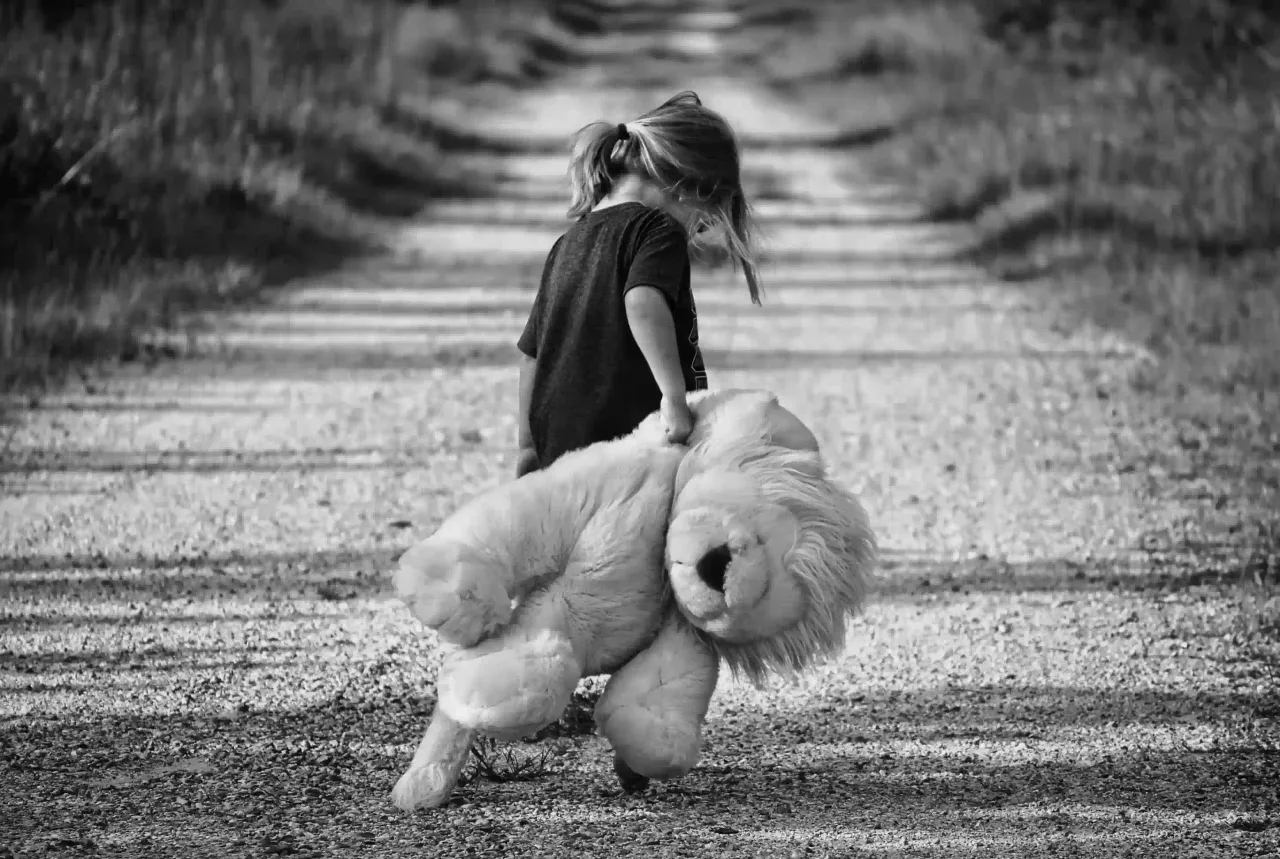Unlearning your childhood self: Forward psychology in practice
Learn how to unlearn all those toxic beliefs you picked up in childhood and build a better you

Table of Contents
- Unlearning your childhood self: Forward psychology in practice
- Why unlearning matters more than you think
- The childhood self: A survival blueprint
- The shift: From Causality to Teleology
- Separation of tasks: It’s not all you!
- What you need to unlearn
- Adler’s Forward Psychology in Practice
- The Courage to Be Ordinary
- The Takeaway: Your Childhood Was the Prologue—Not the Plot
Unlearning your childhood self: Forward psychology in practice
Let’s start with a radical truth: you’re not your childhood self. Let’s deconstruct why unlearning your childhood self isn’t merely therapy talk—it’s your permission slip to construct a different kind of life. You aren’t the scared kid who tiptoed around conflict, the overachiever who grew up thinking love had to be earned, or the quiet one who believed being invisible was being safe. You are not the sum of your early wounds, your birth position, or your parents’ projections. You are something much greater: a person who has his/her/their choice of seat on who you wish to be. That is where we get inquisitive (and possibly a little audacious) about how to release the old tales that we all tote around from when we were little. But first, you must unlearn.
Why unlearning matters more than you think
Here’s a truth bomb: The insecurities and quirks and grand dreams you have? Most of them were a result of thoughts you picked up as a kid, sometimes by accident. We even spend our entire adulthood attempting to “fix” ourselves. We pursue productivity hacks, healing modalities, and self-help books like they are magic incantations. But maybe, just maybe, it’s worth noting that genuine change isn’t about adding more—but releasing that which does not serve us.
Adler throws us a curveball: We aren’t trapped by those childhood scripts. The past is not a life sentence. Meanings are not determined by situations, but we determine ourselves by the meanings we give situations. It’s less about what happened, and more about what you’re choosing in this moment. Forward Psychology questions: What are you choosing next?
The childhood self: A survival blueprint
Your childhood self was not mistaken. They were adaptive. They learned to live in a world that seemed unsure, too much, or dangerous. Perhaps they became the peacekeeper, the perfectionist, the troublemaker, or the invisible one. These weren’t flaws—these were survival techniques.
Adler referred to this as your “lifestyle”—not in the ‘gram sense, but as the idiosyncratic system of assumptions and routines that you created early in life to give meaning to the world. It’s your inner logic, your inner GPS. And although it outlived you, it may not help you move forward. For instance, if you grew up believing that love is dependent upon “achievements” or “compliant” behaviour, you may now be having issues with intimacy, openness, or self-worth. If you grew up being compared to brothers and sisters, you may still find yourself running to a destination you didn’t agree to.
The shift: From Causality to Teleology
Here’s where Adlerian psychology gets radical. Rather than asking, “What caused this behavior?” Adler asked, “What is the purpose does this behaviour serve?” This is teleology—the idea that, we act toward goals, not toward the past. So if you procrastinate, it’s not because you’re lazy. Maybe you’re fearful of failure and need to defend your self-image. If you’re withdrawing, maybe it’s because you’re holding off on rejection. In The Courage to Be Happy, the authors make the observation that even emotions such as anger or fear are vehicles we employ in order to get something done—such as control, avoidance, or attention. It is not self-blame. It is self-knowledge.
Separation of tasks: It’s not all you!
If you have ever read The Courage to Be Disliked, then you probably understand this paradigm shift of separating YOUR tasks from OTHERS’ tasks. Your task is your intention, your effort, your truth and not how others react, whether they approve, or if you “fit in” their idea of you. Much of what mattered in childhood, like being good, keeping your head down, seeking validation, wasn’t possibly your responsibility anymore. The deadline on those childhood projects has expired.
What you need to unlearn
Unlearning isn’t erasure—it’s evolution. It’s looking at your childhood beliefs and asking, “Is this still true? Is this still useful?” Here are some common beliefs worth challenging:
- I have to earn love.
- Conflict is dangerous.
- I’m not enough unless I’m perfect.
- Other people’s opinions define me.
- I must always be in control.
These beliefs often show up in adulthood as burnout, people-pleasing, anxiety, or emotional eating. They’re the voice of younger you who was so desperate to be safe. But you are not that kid anymore. You’ve got new tools, new choices, and new aspirations. And yes, it does take time and courage. But with every little act of courage, you reclaim more of your own story.
Adler’s Forward Psychology in Practice
So how do we move forward? Adlerian therapy follows a four-phase process- Engagement, Assessment, Insight, and Reorientation. It starts with building a safe, respectful relationship. Then it explores your lifestyle—your early memories, family dynamics, and private logic. From there, you gain insight into your patterns. And finally, you reorient toward new goals. This isn’t about fixing the past. It’s about choosing a future.
The Courage to Be Ordinary
Perhaps the greatest concept in The Courage to Be Disliked is this: you don’t have to prove you’re special in order to be valuable. And indeed, attempting to be special most often stems from feelings of inferiority. Real happiness comes from finding meaning in contribution, not comparison. This is an uncomfortable pill to swallow in a world that celebrates hustle culture, visibility, and perfection. But Adlerian psychology encourages us to exit the stage and enter real life. To cease performing and begin participating.
The Takeaway: Your Childhood Was the Prologue—Not the Plot
Unlearning your childhood self isn’t about rejecting who you were. It’s about honouring that version of you and choosing who you want to be next. It is an act of rebellion and renewal. Adler said, The only normal people are the ones you don’t know very well. We’re all messy, striving, and beautifully unfinished. And that’s okay.
So if you’re ready to rewrite your story, start with this question- What goal am I moving toward? Not what happened to me. Not what others expect. But what I choose. You get to choose your next chapter—one unburdened step at a time.
Stay curious, stay courageous, and remember: “The important thing is not what you were given in childhood, but what you choose to do with it now.” If you’re ready to put the past into perspective, Unburdened You is here with you every step (and misstep) of the way.
Want to see where your old patterns might be holding you back? Try the free self-awareness tools and journal prompts on our site. Your future self is waiting—and they’re a lot more flexible than you think.
Related Posts

Political anxiety is real: How global conflict is affecting everyday minds
Political anxiety is no fleeting discomfort—it quietly chip away at our mental well-being, leading to burnout, emotional fatigue, and what many experience as high-functioning depression.

Depression isn't sadness (and why that matters)
How you respond to sadness versus depression is entirely different. Getting one confused with the other can mean frustration, poor coping, or worse—

Lonely, broke, and overqualified: The mental health crisis among international students in Europe
Many international students across Europe are quietly grappling with a mental health crisis fuelled by isolation, financial strain, and obstacles in the job market. This silent struggle isn’t about missing home-
